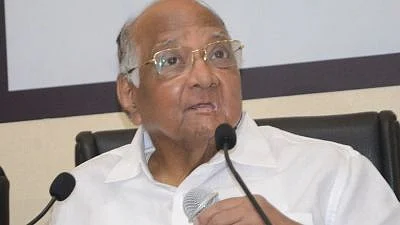The Supreme Court on Monday, 16 March, rejected the anticipatory bail pleas filed by academics and activists Gautam Navlakha and Anand Teltumbde, and directed them to surrender to the NIA within three weeks.
Navlakha and Teltumbde had filed appeals in SC against the Bombay HC’s rejection of their anticipatory bail plea.
Soon after SC denied anticipatory bail, civil rights activist Gautam Navlakha released a letter that states "I am joining the ranks of thousands of others who are made to suffer for the trial and its outcome"
Navlakha and Teltumbde are among the several academics, activists and lawyers accused of instigating the Bhima Koregaon violence on 1 January 2018. A subsequent FIR also claimed the accused were Maoists and were engaging in anti-national activities, leading to charges under the UAPA being added.
The case was being investigated by the Pune Police, but after the new government in Maharashtra indicated it was going to review the case, it was transferred to the NIA.
‘Dare I Hope to Be Freed’: Navlakha
Navlakha in his letter wrote that now that he has to surrender within three weeks, he wants to ask himself “Dare I hope to be freed from the burden of being accused in what appears to me, to be yet another conspiracy trial, one more in the long list of such trials?”
He further wrote that UAPA is a dreadful act, it allows banning of an organisation and outlaws its ideology. It is a a law that makes the very process an instrument of punishment, without even waiting for the trial and its outcome.”
Navlakha ended his letter by stating that there is nothing more pressing than “clear my name.”
What Happened at the Hearing?
Senior advocates Abhishek Manu Singhvi and Kapil Sibal represented the accused, arguing that there was no prima facie case against them, and that there was no evidence that tied them to the Bhima Koregaon violence, or proved they were members of any banned Maoist organisations.
Solicitor General Tushar Mehta, representing the NIA, argued that there was sufficient evidence, including documents recovered from the computer of one of the other accused, Rona Wilson, to indicate their involvement.
Sibal and Singhvi sought to argue that the documents recovered from Wilson’s computer were neither admissible as evidence, not were they even reliable, being just random documents with claims of the others’ involvement, rather than emails.
Mehta pointed out that the Bombay HC had refused to quash the FIR against Navlakha and Teltumbde, making observations that there was enough evidence for a prima facie case against them.
The apex court bench of Justices Arun Mishra and MR Shah agreed that the material seemed sufficient to satisfy a prima facie case, and so anticipatory bail could not be granted.
Attempts to go into the details of the documents were rejected as there was no charge sheet bringing these evidences on record, as yet, and the judges wanted to ensure the investigation could be carried out.
Although the Solicitor General sought to ensure Navlakha and Teltumbde could be arrested as soon as their interim protection from arrest ends on 16 March, the judges decided to give the accused three weeks to surrender.
(At The Quint, we question everything. Play an active role in shaping our journalism by becoming a member today.)


